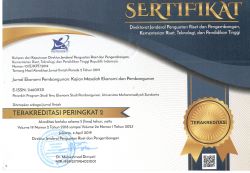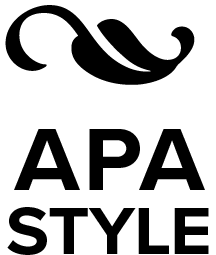Reforming Spending Policy and Its Impact on Indonesia’s Economy: The Case of Fuel Subsidy and Infrastructure
Muhammad Anas(1*)(1) Department of Economics, Universitas Muhammadiyah Surakarta
(*) Corresponding Author
Abstract
The quality of Indonesia’s infrastructure up until 2014 was considered uncompetitive, and one of the reasons was that there was not enough money spent on infrastructure, and too much on fuel subsidy. In November 2014, the government of Indonesia decided to cut the expenditure for fuel subsidy and reallocate the money to invest on public services. This study was conducted with the intention to quantify the impact of the program on economic growth and income distribution in Indonesia using Social Accounting Matrix (SAM) model. Simulation results indicated that the impact from social and human capital infrastructure was bigger than that of economic infrastructure, although the simulation for both categories resulted in an increase of sectoral output and domestic income. Therefore, improving infrastructure, especially social, is vital to stimulate economic activity in the long run.
Keywords
Full Text:
PDFReferences
Akinyemi, O., Alege, P. O., & Ajayi, O. (2017). A Simulation of the Removal of Fuel Subsidy and the Performance of the Agricultural Sector in Nigeria using a Dynamic Computable General Equilibrium Approach. Covenant Journal of Business & Social Sciences (CJBSS), 8(1), 60–70.
Aschauer, D. (1989). Is Public Expenditure Productive? Journal of Monetary Economics, 23(September 1988), 177–200. https://doi.org/10.1103/PhysRevLett.92.157006
Cabinet Secretariat. (2015). Berterima Kasih Kepada Rakyat, Presiden Jokowi Jelaskan Alokasi Pengalihan Anggaran Subsidi BBM. Retrieved from https://setkab.go.id/berterima-kasih-kepada-rakyat-presiden-jokowi-jelaskan-alokasi-pengalihan-anggaran-subsidi-bbm/
Chani, M. I., Jan, S. A., Pervaiz, Z., & Chaudhary, A. R. (2014). Human Capital Inequality and Income Inequality: Testing for Causality. Quality and Quantity, 48(1), 149–156. https://doi.org/10.1007/s11135-012-9755-7
Cooke, E. F. A., Hague, S., Tiberti, L., Cockburn, J., & El Lahga, A.-R. (2016). Estimating the impact on poverty of Ghana’s fuel subsidy reform and a mitigating response. Journal of Development Effectiveness, 8(1), 105–128.
Diop, N. (2014). Why Is Reducing Energy Subsidies a Prudent, Fair, and Transformative Policy for Indonesia? World Bank-Economic Premise.
Fathurrahman, F. (2014). Simulating Indonesian Fuel Subsidy Reform: A Social Accounting Matrix (SAM) Analysis. The Graduate School of Natural and Applied Sciences of Middle East Technical University. Middle East Technical University.
Ford, R., & Poret, P. (1991). Infrastructure and Private Sector Productivity. Economic Studies, (17).
Indonesia’s Ministry of Finance. (2018). Laporan Keuangan Pemerintah Pusat. Jakarta. Retrieved from https://www.kemenkeu.go.id/publikasi/laporan/laporan-keuangan-pemerintah-pusat/
KataData. (2015). Kemana Pengalihan Dana Subsidi BBM.
Palei, T. (2015). Assessing the Impact of Infrastructure on Economic Growth and Global Competitiveness. Procedia Economics and Finance, 23(October 2014), 168–175. https://doi.org/10.1016/S2212-5671(15)00322-6
Raihan, S. (2011). Infrastructure and Growth and Poverty in Bangladesh. Munich Personal RePEc Archive, (37882).
Santoso, S. (2018). Menguasai Statistik dengan SPSS 25. Jakarta: PT Elex Media Komputindo.
Schwab, K., & World Economic Forum. (2014). The Global Competitiveness Report 2014-2015. World Economic Forum Reports 2014. https://doi.org/ISBN-13: 978-92-95044-73-9
Transportation Infrastructure Investment : Macroeconomic and Industry Contribution of the Federal Highway and Mass Transit Program. (2014), (December).
Widodo, T., Sahadewo, G. A., Setiastuti, S. U., & Chaerriyah, M. (2012). Impact of Fuel Subsidy Removal on Government Spending. Energy Market Integration in East Asia: Theories, Electricity Sector and Subsidies, (August), 173–206.
Article Metrics
Abstract view(s): 1517 time(s)PDF: 1089 time(s)
Refbacks
- There are currently no refbacks.
















